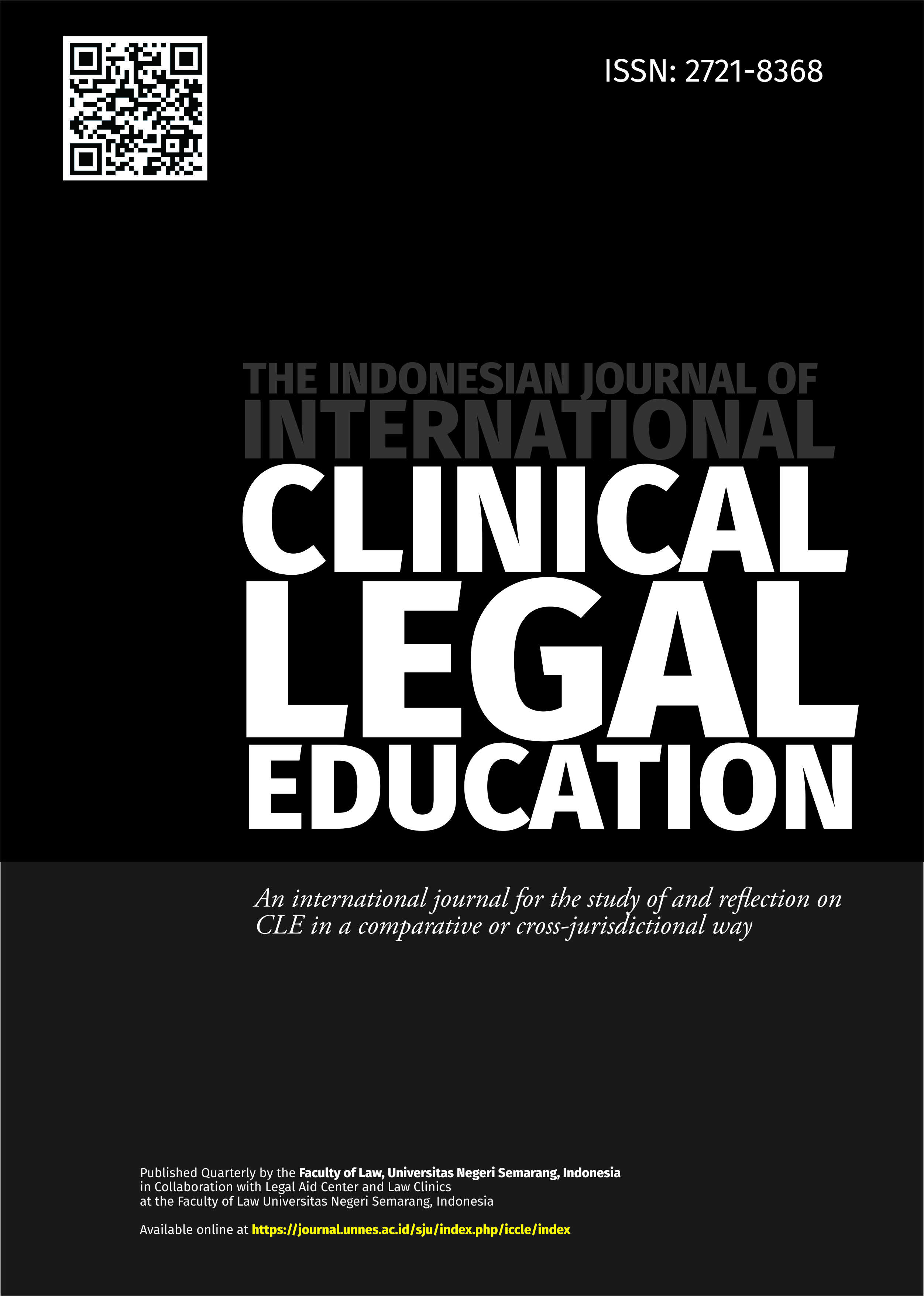Law Construction in Modern Society
Main Article Content
Abstract
The effectiveness of law as a tool for social construction should ideally enhance our societal framework and address the challenges of the evolving era. However, contemporary observations reveal a growing lack of trust in the legal system. Critics point to perceived deficiencies in the quality of laws as agents of social construction and in achieving substantive justice. Moreover, a palpable anxiety surrounding a legitimacy crisis is evident. The role of law as a medium for social construction, aiming to establish a just and prosperous society, faces considerable resistance. Understanding the root causes behind society's struggle to interpret and embrace the purpose of law as a social construction instrument becomes imperative. The inadequate level of legal awareness among the populace is closely linked to issues such as educational disparities. The existing education systems, patterns of regulatory socialization, and restricted public access to information contribute to a diminished recognition of the importance of law. Addressing these challenges necessitates a focus on education as a viable solution. By elevating legal awareness, it is anticipated that the propensity for individuals to contravene the law would diminish. Therefore, investing in public education emerges as a promising strategy to foster the realization of a modern, constructively developed society.
Article Details

This work is licensed under a Creative Commons Attribution-ShareAlike 4.0 International License.
The copyrights of the article in Indonesian J. Int'l Clinical Leg. Educ. is on the Author(s), however, before publishing, it is required to obtain written confirmation from Author(s) in order to ensure the originality (Author Statement of Originality). The statement is to be signed by at least one of the authors who have obtained the assent of the co-author(s) where applicable. This work licensed under a Creative Commons Attribution-ShareAlike 4.0 International (CC BY-SA 4.0). All writings published in this journal are personal views of the authors and do not represent the views of this journal and the author's affiliated institutions.
References
Afandi, Fachrizal. "Implementasi Pengabdian Masyarakat Berbasis Access to Justice Pada Lembaga Bantuan Hukum Kampus Negeri Pasca Pemberlakuan Undang-Undang Bantuan Hukum." Jurnal Rechts Vinding: Media Pembinaan Hukum Nasional 2, no. 1 (2013): 31-45.
Held, David. Models of Democracy, Indonesian version Abdul Haris (Trans). Jakarta: The (Jakarta: Akbar Tanjung Institute, 2006).
ILRC. United Nations Principle and Guidelines on Access to Legal Aid in Criminal Justice System. (Jakarta: The Indonesian Legal Resources Center, 2012).
Kansil, CST. Pokok-pokok Pengetahuan Hukum Dagang Indonesia. (Jakarta: Sinar Grafika, 2008).
Panjaitan, Budi Sastra. "Melaksanakan Tri Dharma perguruan Tinggi melalui bantuan hukum." Jurnal Keadilan 2, no. 1 (2015): 10-24.
Pusparini, Ike Triana. “Peranan Lembaga Bantuan Hukum Dalam Mengartikulasikan Bantuan Hukum Bagi Masyarakat Kurang Mampu (Studi Kasus LBH Surabaya Pos Malang)”. Thesis. (Malang: University of Muhammadiyah Malang, 2004).
Susanto, Nur Agus. "Dimensi Aksiologis Dari Putusan Kasus “ST”." Jurnal Yudisial 7, no. 3 (2014): 213-235.
Syahputra, Redi. Bantuan Hukum Adalah Hak Kita. (Jakarta: Canting Press, 2013).
